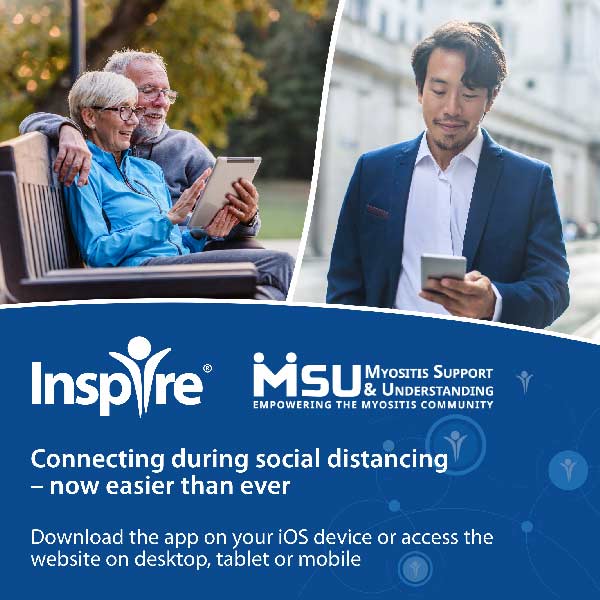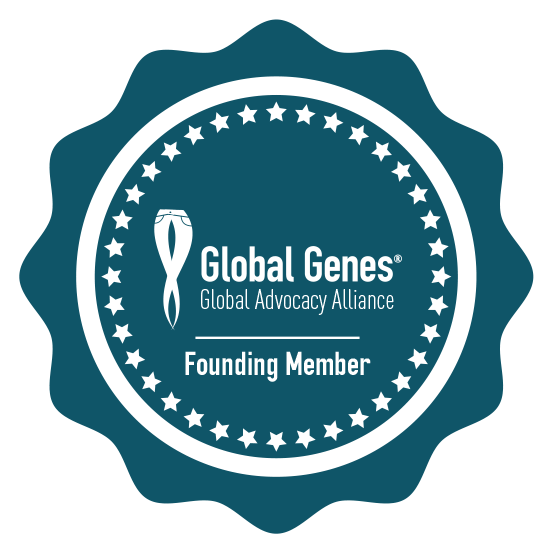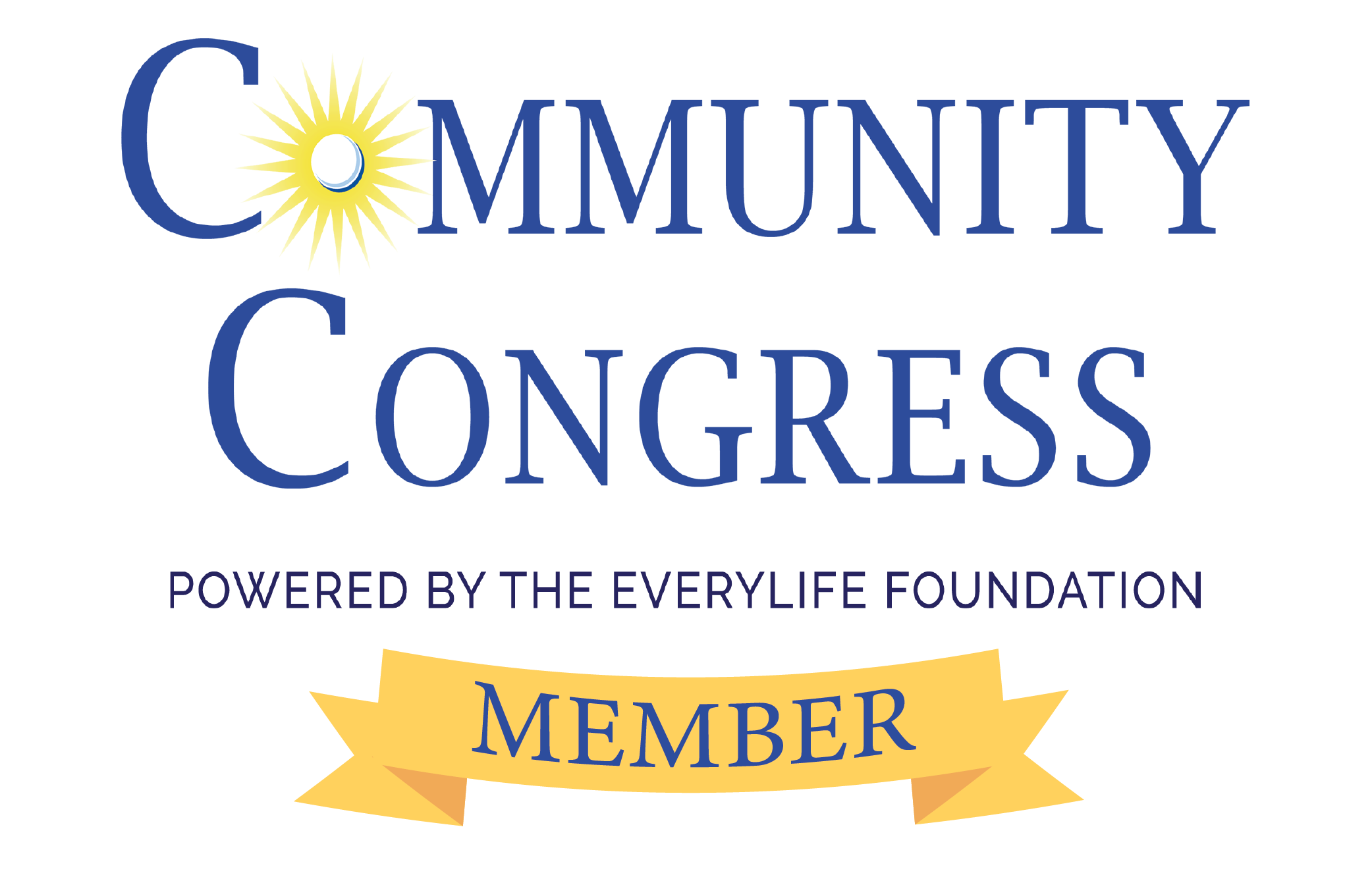Myositis Patient Financial Assistance
Apply Online (New)
We now have an online application to help make the assistance program easier for applicants.
You must have your doctor fill out and sign our Doctor’s Certification form to upload with your application. You can get the Doctor’s form here.
This program is available for MSU members who are residents of the United States and diagnosed with a type of Myositis (inflammatory myopathy).
If you have not yet created your free MSU membership, please do so before applying.
MSU Myositis Patient Financial Assistance Program
Myositis Patient Financial Assistance Program Overview
To apply for financial assistance the patient must be a U.S. resident diagnosed with a type of inflammatory myopathy (Myositis) or be going through a diagnostic process in which doctors strongly suspect and are testing the patient for one of the forms of myositis through muscle or skin biopsy, EMG, and/or blood work.
We now have a secure online application! Requests for assistance are evaluated on a case-by-case basis and are subject to funding availability as well as eligibility and financial need. Patients may be eligible to receive up to a maximum of $2,000 once per rolling 24 months from MSU, however, this is not a guarantee of future assistance.
All supporting documents must be included to be considered for an award. If you qualify for a financial award, the amount awarded will be paid directly to your creditor(s), with the exception of case-by-case situations. We will not pay businesses that are owned by a spouse, partner, or immediate family member. Please do not send us any health or medical records as we do not need these.
The program covers
Medical Bills are defined as bills payable for medical diagnosis, treatment, and care to pharmacies (or formularies) for prescriptions, accredited hospitals, labs, Licensed Medical Doctors, Doctors of Osteopathy, urgent care centers, and other like institutions.
Not a co-pay assistance program. These are not reimbursable expenses. We will pay directly to your creditors according to a recent bill you provide to us showing insurance has paid their part.
Emergency Household Expenses are defined on a case-by-case situation but may include utility bills, mortgage or rent payments, etc. If approved, these are paid directly to your creditor. You must include copies of the original bills that include the payment mailing address, telephone number, amount currently due, and account number.
For rent payments, full details are in the help guide and include several additional requirements.
Mobility Devices are defined as devices that help people with myositis enjoy greater mobility, freedom, and independence and include things such as wheelchairs, power wheelchairs, stairlifts, Hoyer lifts, ramps, transfer devices, certain home and bathroom modifications, and others.
Since mobility device types vary based on need and complexity, applications will be determined on a case-by-case scenario, using multiple factors including medical need as determined by your doctor, device purpose, health insurance coverage, and if the device meets our definition of devices likely to be covered under this program.
Details and Eligibility
- Financial assistance is only available to residents of the U.S.
- Myositis patients may request assistance up to $2,000.00. This is not a guarantee that awardees will receive the full amount.
- Applications that are incomplete or missing required documentation may not be considered.
- DO NOT upload medical records. We do not need them.
- Anyone previously awarded assistance must wait a full 24 months from the date of their last application before submitting another request.
- This is NOT a co-pay program.
- We process applications on a first-come, first-serve basis and only process applications that include all required information and supporting documents.
Processing your application
Please allow at least 14 days for the review and processing of your application. To save on costs and time, and to help the environment, we prefer to use email for notifications, application updates, and requests for additional information in order to make a decision for you quickly. However, there is an option on the form to choose US Mail, but we want to remind you that this will significantly slow down your application process.
Before you start your application
There are various supporting documents that are required, depending on the type of assistance you are requesting. However, below is a list of the documents we require from all applicants.
Please gather copies of the following documents to have ready to submit your application via email, fax, or online:
- All household members – Last year’s tax return (please redact/black-out) your social security number OR the last three (3) pay stubs. For Social Security recipients, provide a copy of the income letter sent at the start of each year.
- All household members – Last 2 months of bank statements for all checking and savings accounts.
- Personal Statement – provide a short overview of your situation and why you are requesting assistance. This does not have to be formal or lengthy. There is a section where you can type or upload it.
- Signed Doctor’s Form – Get the form here. Do not submit your application without the signed doctor’s form.
- Full statements/invoices/receipts for ALL bills with which you are requesting assistance. (we do not accept screenshots or payment stubs)
- In cases of emergency rent assistance, in general, we require a copy of the lease and eviction notice, and a signed letter from the landlord. More details are available on that page of this form.
Applying for financial assistance
Below is a brief summary of the steps to request financial assistance. Full details are included in the application and help guide.
- Register for your free MSU membership at UnderstandingMyositis.org/register.
- Review the eligibility information for financial assistance on the overview tab.
- If you have received our assistance in the past, has it been a full 24 months since you were last approved? If not, please wait to apply. For example, if you were approved in May 2021, you would be eligible to apply again in May 2023. Members are eligible to apply once per rolling 24 months. However, this does not mean we will be able to provide assistance for the same circumstance.
- Apply using our secure online application here.
- If you prefer a paper application, please contact us at Office@Understandingmyositis.org
Do NOT upload medical records as we do not need these.
Apply Online
Make the process easier for you by using our secure online application form. Click here to get started.
Our Email
Supporting documents and questions: office@UnderstandingMyositis.org.
Be sure to check your spam/junk folders for replies and add us to your contacts.
Our Fax
Fax supporting documents to 888-MYO-RARE ( 888-696-7273)
Our Mailing Address
MSU
9125 N. Old State Road
Lincoln, DE 19960
About the MSU Myositis Patient Financial Assistance Program
Update: Beginning April 1, 2023, MSU launches an online financial assistance application and patients may apply on a rolling 24-month period, meaning they must wait a full 2 years from the last application date to apply as long as all criteria are met.
Update: Beginning in 2022, the MSU Myositis Patient Financial Assistance Program is expanding! The expansion includes an increase in the maximum patient yearly award amount, from $1500 to $2000.
The MSU Myositis Patient Financial Assistance Program was fully realized and released in late 2016. MSU is a 501(c)(3) nonprofit organization founded by myositis patients for myositis patients and caregivers.
Myositis, a rare and debilitating autoimmune disease, affects an estimated 50,000-75,000 people in the United States. This program adds to MSU’s ever-growing list of programs that help improve the lives of myositis patients.
Due to the rarity of myositis and its various types and subtypes, including the fact that some doctors may never see a patient with myositis in their careers, patients with or suspected of having myositis often face difficulties and significant delays in getting a diagnosis. Furthermore, patients with chronic illnesses often face financial difficulties in part due to the high cost of living with a rare disease. MSU has worked tirelessly to raise funds to establish and expand the financial assistance program and we give thanks to our sponsors, donors, members, and supporters for continuing to help fund this program.
MSU awards funds to patients (based on qualification and approval) for medical bills, mobility devices, and emergency household expenses through this crucial and much-needed program.
Through these funds, MSU hopes to provide much-needed financial relief to patients whose lives are already stressed due to illness, allowing them to concentrate more fully on their health. Patients who qualify will be eligible for a maximum of $2000 per rolling 24 months, based on many factors defined in the application and the help guide.
How do I apply?
You can apply using the secure online form We require a fully completed application AND supporting documents. Please DO NOT send your application without the supporting documents as this will delay your application’s review.
Can I call someone at MSU to see if I am eligible?
Because every person’s situation is different, no one in our office can tell you for certain whether or not you qualify for help before you submit an application. The only way to know whether you qualify is to complete an application AND provide us with the required supporting documents.
If you have questions about your application, you can reply to the email we will send letting you know your application has been received.
I am starting a medication and I am looking for co-pay assistance. Does MSU offer a prescription co-pay assistance program?
No, we DO NOT offer a prescription co-pay assistance program. However, we provide assistance for medical bills, and prescription costs are covered under this type of assistance once you receive an invoice, statement, or bill showing insurance has paid their part. We require a full invoice or statement from the company, and if you are approved, we pay directly to the creditor. We do NOT accept screenshots for supporting documents.
When am I able to apply for financial assistance?
If this is your first time applying for financial assistance with MSU, you can submit your application and supporting documents today. Patients are eligible to apply once every rolling 24 months (two years). If you have received financial assistance from MSU in the past, you are eligible to apply again 24 months following your previous application. For example, if you were approved on March 3, 2021, you would be eligible to apply again on March 3, 2023.
Can you mail me a copy of the financial assistance decision letter?
We send all approval information and the decision award letter by email so that you have it for your records and it can be printed. If you would still like us to mail you a copy, please either notate this request on the application or in your personal statement. If you need a copy of an award letter from a previous application, please contact us with the request.
Additional funding sources for equipment
We have not vetted the programs below and are unable to answer any questions about them. We provide this as an additional resource to the Myositis Patient Financial Assistance Program.
LifeNets The Wheelchair Project – The goal of LifeNet’s Wheelchair Project is to put wheelchairs that are not currently being used into the hands of someone who can benefit from them. LifeNet’s Wheelchair Project is for those living in the United States. The program is designed to facilitate the exchange of wheelchairs between individuals and is not for the use of vendors or distributors. Both manual and power chairs may be available in your area.
Visit https://www.lifenetswheelchairproject.org to learn more and search for wheelchairs in your area of the United States.
Muscular Dystrophy Family Foundation (not associated with MDA) — http://mdff.org/ — Its mission is to provide adaptive equipment and emotional support to individuals and families with muscular dystrophy. Examples of equipment include purchase and repair of orthopedic equipment and appliances; wheelchairs, leg braces, breathing machines, shower chairs, lifts and hospital beds, wheelchair lifts and ramps.
Disabled Children’s Relief Fund — http://www.betterhearing.org/hearingpedia/hearing-loss-resources/financial-assistance/disabled-childrens-relief-fund a non-profit organization that provides disabled children with assistive devices, rehabilitative services, and support for arts and humanities projects. DCRF provides disabled children with equipment, prostheses, and rehabilitative services throughout the United States. DCRF focuses special attention on helping children that do not have adequate health insurance, especially the physically challenged. In some cases, DCRF may be the last resort.
First Hand – https://applications.cerner.com/firsthand/ – may fund clinical expenses and durable medical goods – medical costs, van lifts, wheelchairs, etc, if there must be no existing financial net, such as Medicaid or private insurance, to cover the requested expenses.
Wheelchair Foundation – http://wheelchairfoundation.org/ – a non-profit organization providing wheelchairs to those in need around the world.
The Darrell Gwynn Foundation Wheelchair Assistance Program – https://darrellgwynnfoundation.org/wheelchair-donation-program.htm
Social Security Disability & Medicaid – http://www.socialsecurity.gov/disabilityresearch/wi/medicaid.htm – Medicaid is a jointly funded, Federal-State health insurance program for low-income and needy people. It covers children, the aged, blind, and/or disabled and other people who are eligible to receive federally assisted income maintenance payments.
Aubrey Rose Foundation – http://aubreyrose.org/ – Helps families caring for children with life-threatening illnesses with the focus being on the family unity. It strives to lift families from life’s complexities during this difficult time by providing emotional and financial support.
Bright Steps Forward– http://www.brightstepsforward.org/ – Bright Steps Forward, Inc. is a 501c nonprofit organization that provides funding for intensive pediatric therapy to financially disadvantaged children with neurological disorders such as cerebral palsy, disabilities of prematurity, autism and other congenital or acquired conditions that affect their physical functioning.
United Healthcare Foundation – http://www.uhccf.org/ – Children who have medical needs are sometimes not insured comprehensively to provide coverage for all of their medical treatments. There are few places for families who have gaps in their health benefit plan coverage to turn to for funding medically necessary services for their children. Children may go without necessary treatment, or, they receive the care and families assume a large amount of debt. The Foundation understands these needs and is willing to help fill this void.
Hannah & Friends – http://www.hannahandfriends.org/ – A non-profit organization dedicated to improving the quality of life for children and adults with developmental disabilities.
Division of Specialized Care for Children – http://dscc.uic.edu/ – Helps children with disabilities, and those who have conditions that may lead to disabilities, grow and develop to the full extent of their abilities.
Midwest Special Needs Trust Grants – http://www.midwestspecialneedstrust.org/charProgGrants/default.htm – A program that provides small financial assistance grants to persons with disabilities who meet the eligibility criteria for disability and income. Two types of grants are available through the program.
Modest Needs Mission – https://www.modestneeds.org/about-us/index.asp – To prevent otherwise financially self-sufficient individuals and families from entering poverty, To restore the financial self-sufficiency of individuals who are willing to work but are unable to do so because they do not have the means to remit payment for a work-related expense; To empower permanently disadvantaged individuals To strengthen small non-profit organizations by providing a forum whereby such organizations can apply directly to the general public for the help they need to complete the relatively inexpensive projects that will allow them to better serve their clients and the communities they exist.
Rehabilitative Equipment Exchange – http://www.rehabequipmentexchange.com/index.html – This national network is a FREE service to facilitate the exchange and transfer of used rehabilitation equipment (used rehab equipment). Individuals can use the web site to buy, sell, or donate used rehab items of many types, including wheelchairs, pediatric equipment, mobility aids, ADL aids, communication devices, assistive technology, and exercise equipment.
NOTE: Applicants and potential recipients of financial assistance should discuss any ramifications, including taxes, with their caseworker, accountant, or lawyer. MSU cannot and will not provide legal or tax advice.
Anti-Discrimination Policy: MSU does not discriminate based on race, color, age, religion, national origin, gender, gender expression, sexual orientation, national origin (ancestry), marital status, disability, or political affiliation. All financial applications will be reviewed on a case-by-case basis and the final determination will be based on eligibility, financial need, and availability of funds.









